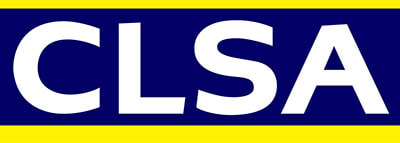|
A large part of our work at VIA Frontiers is committed to education. We are passionate about helping individuals attain self-management tools, to improve efficiencies and ultimately lead a happy life. The blogs I have written below are testimony to this.
Every blog will add value to the reader and give insights for free. How does an individual shift their focus for a different posture in life that will bring them grace, satisfaction and a life they love. Happy reading! Recently, one of my students after the NLP Practitioner International Certification course, was raving to a close friend. “You should do this course. It’s so amazing”.
Her friend said “Oh no! I am not into that woohoo stuff!” Shocked at this corporate lady’s response, my student’s immediate thought was “How sad that something so human is seen as woohoo”. She left it at that. While most of society are aware they have a conscious mind that drives them, they think this is the only mind they possess. WRONG! The conscious and unconscious minds represent different levels of mental functioning, each with distinct characteristics in shaping our thoughts, behaviors, and experiences. They co-exist and an artful balance of both is required to reach genius. For a start, capacity is unlimited with the unconscious mind. It is able to process a much larger volume of information simultaneously. It handles automatic, routine tasks and complex information without requiring conscious effort. This is why people who have learnt how to work with their unconscious, process faster, are quick and efficient, enabling rapid responses and actions. Those who use their conscious mind require focus and attention to perform a task, as it can only handle a limited amount of information at any one time. Another major aspect of life is decision making. As many behaviors are influenced by implicit biases and intuition that reside in the unconscious, those who are aware of these make faster and better decisions. Others who require conscious reflection need time to deliberate which often means missing the boat. In my personal journey, my corporate experience taught me how to make logical, rational decisions. Going beyond, as I upskilled to become an NLP Trainer I learnt the art of flowing in balance with my conscious and unconscious minds. The biggest difference you might ask? Today I save a lot of energy. I KNOW. Decisions are easy. My defined personality makes it easy to live life out of the noise and in flow with my surroundings. A totally different way of being. Why wouldn’t you want it? Recently, one of my students after the NLP Practitioner International Certification course, was raving to a close friend. “You should do this course. It’s so amazing”.
Her friend said “Oh no! I am not into that woohoo stuff!” Shocked at this corporate lady’s response, my student’s immediate thought was “How sad that something so human is seen as woohoo”. She left it at that. While most of society are aware they have a conscious mind that drives them, they think this is the only mind they possess. WRONG! The conscious and unconscious minds represent different levels of mental functioning, each with distinct characteristics in shaping our thoughts, behaviors, and experiences. They co-exist and an artful balance of both is required to reach genius. For a start, capacity is unlimited with the unconscious mind. It is able to process a much larger volume of information simultaneously. It handles automatic, routine tasks and complex information without requiring conscious effort. This is why people who have learnt how to work with their unconscious, process faster, are quick and efficient, enabling rapid responses and actions. Those who use their conscious mind require focus and attention to perform a task, as it can only handle a limited amount of information at any one time. Another major aspect of life is decision making. As many behaviors are influenced by implicit biases and intuition that reside in the unconscious, those who are aware of these make faster and better decisions. Others who require conscious reflection need time to deliberate which often means missing the boat. In my personal journey, my corporate experience taught me how to make logical, rational decisions. Going beyond, as I upskilled to become an NLP Trainer I learnt the art of flowing in balance with my conscious and unconscious minds. The biggest difference you might ask? Today I save a lot of energy. I KNOW. Decisions are easy. My defined personality makes it easy to live life out of the noise and in flow with my surroundings. A totally different way of being. Why wouldn’t you want it? Most people answer NO to this question and yet it is the driver that stores our thoughts, feelings and memories. The key point here is that like a hard drive on our computer, it processes everything that is outside our conscious awareness which significantly influences behavior.
The biggest domain of our unconscious mind is to protect us. In doing so, it represses memories and emotions so traumatic experiences don’t surface. These are too painful or disturbing for the conscious mind to handle however repressing them does not mean they have been eradicated. In fact to the contrary, these unresolved emotions such as fear, anger, guilt and sadness are very much driving the individual. This is why many people believe that they are born a certain way and have no control over their emotions. I often hear “oh this runs in our family”. But this is a myth. You can change patterns of behaviour by understanding the unconscious mind, as all change occurs in the unconscious. So imagine if you could master through Neuro Linguistic Programming (NLP), the methodology to get rid of conditioned emotional and behavioral responses? How cool would that be? For instance, breaking the pattern of flinching at the tonality of your boss because he resembles your father’s tonality, who you never got along with. Often people who have never delved into learning about their unconscious mind, are unaware of their behaviours. Why do I like / dislike this person so much? Is it a matter of the look they have that reminds me of someone in my past? Instinctive reactions and intuitive judgments often arise from unconscious processing of information and past experiences like these. This is how individuals can help themselves achieve more in life. Eradicating phobias and irrational fears which are rooted in unconscious memories and associations, leave them to create a life that they yearn for. NLP has more than a hundred processes in its toolbox, each designed to attend to either removing past negativity and once done, to create a life that the individual desires. This is where true transformation lies! “Our background and circumstances may have influenced who we are but we are responsible for who we become” – Barbara Geraci
This quote signifies my motto in life. Since reinventing myself from a career banker to an NLP (Neuro Linguistic Programming) Trainer, I have taken charge of my life by learning about my unconscious mind and making it work for me. Tapping into my unconscious mind was not a deliberate strategy on my part. Life just took me towards a path of personal growth. I first joined courses that were based on conscious mind strategies. Important to get the ball rolling and then go beyond to the more powerful mind. The unconscious mind influences our behaviors, decisions and abilities but most often since people are unaware of this way of being, operate below what they could achieve. My unconscious mind which helped me access hidden thoughts, feelings, and motivations was a new world. I embarked on meditation practices initially through guided imagery, learning about the visuals I was creating in my mind. Then went on to 10 day Vipassana meditation retreats to understand myself better. While accessing deeper realms of my mind, I began to become aware of my dreams, many of which were messages about my future Life’s Path. One thing led to another. I was drawn to dance and art, expressions of my creative brain, exploring and harnessing the potential of my unconscious mind. I loved every moment of these new parts of ME. Yoga became part of my weekly practice and out of curiosity, I attended classes on Tarot Reading, Astrology, Palmistry and more. I felt a calling to learn and eventually my Path settled on NLP. Having found my calling, I soared to high performance without trying. I loved what I did. I had become a facilitator of change, pulling all of my vast experience together from my beginnings in corporate. My heart sang in doing this work even though it was long hours of consulting, working with clients to get the desired outcomes. Today, I urge everyone to attend whatever makes your heart sing. Become the person you want to be by upskilling your talents and moving towards your strengths. Allow yourself this bandwidth to find meaning in your life. High performance will just follow! As a trained Neuro Linguistic Programming (NLP) consultant, my mind is leaps and bounds ahead of the ordinary man who walks on the street, unaware of the way he operates. What distinguishes me from the masses? My level of acute self-awareness.
Freud developed theories about the unconscious mind. He postulated that behaviour is influenced by thoughts, memories and desires, outside a person’s conscious awareness. Exactly like a computer program, the unconscious mind runs based on patterns from data that I have uploaded into my CPU. Daily experiences good and bad are absorbed through a process of osmosis. I see, hear, feel, taste and smell through my day, adding to my library of events already in my memory. When not organized or when negative memories are accepted without consideration, these begin to pose problems for the person. For instance, as an adult I now know to reject anything that does not represent who I am. If I am asked to do a certain behaviour, I have the choice to do it or not. If they don’t align with my values I walk away. If they resonate, I embrace. This is how I choose friends. How would you pick people to walk alongside you in life, if you didn’t know who you were. My decisions and responses are driven by my underlying thoughts and emotions. Most people are unaware that there is a structure to the unconscious mind and all it takes is the desire to learn it. While many modalities are available today, the genius NLP model created by Grinder and Bandler in the late 70’s far surpass others. Why you might ask? Because NLP like a computer, has form and structure, easily learnt through process. Adding A, B and C together results in a specific outcome. It’s easy to learn, isn’t exclusive to people who have fancy education rather is biased towards those who are already in touch with their emotional self. Profound results are at the end of the road. Accelerated results a definite! In this fast paced world, two tenets of life that breed success. The unconscious mind, so fascinating a subject for all who want to be ahead of the game! I was told the other day by a friend that life is just as good without goals. Most people who set goals are focused on what they want specifically. Those who say they don’t, could perhaps have a big picture idea of where they would like to be by a certain age.
As a specialist of the unconscious mind, Neuro Linguistic Programming (NLP) provides tools for setting and achieving goals. What are we doing exactly? We are focusing the unconscious mind on what we want, represented in language of the five senses. Individuals who do not set goals are not the masters of their destiny! The unconscious mind is obedient. It waits for instructions. If you know what you want, you are then able to create this in the five senses specifically. This is but the tip of the iceberg in commanding your unconscious mind to go out and get it. The weaker conscious mind merely takes steps in line with this goal that has been set. So, this dance between the conscious and unconscious minds is an art. Learning how to do this for better results is the way to go. Attending an NLP Practitioner Program leaves participants with the full array of pieces in the puzzle, of how to live life fully. More than anything, finding an individual’s Life Path is of prime significance. By helping individuals clarify their objectives and create effective strategies for their lives, individuals can over time, continually apply NLP techniques to set new goals, overcome obstacles, staying focused on their personal and professional aspirations. This is the way to do life easily. Eradicating internal conflict, an individual feels freedom in making swift, good decisions, the most basic life skill that is missing in many. Caught up in Life’s whirlwind as events happen quickly today, individuals are finding it harder to cope. Another reason why thinking different has become imperative! Think about it. If you had a clear mindset with tools to solve any problem and propel you towards your goals, wouldn’t that be awesome? I took that step more than twenty years ago and have never looked back. Do life the easy way and you will know what loving the life you lead, means. Elevating mental health and producing fabulous results in the end will leave you a happy and content individual. Goal setting will happen so automatically, you will learn how to do it the way your unconscious mind understands. Observing successful individuals climb the corporate ladder in a short space of time requires strong communication skills. In this order, every individual would do themselves justice if they did the following;
Understand your Personality Preferences We are born with preferences. As a trained Myers Briggs Personality Type Indicator (MBTI) facilitator, I know the importance of this especially for leaders, when setting up their teams. A senior leadership team without diverse personality types is in grave danger for they see things the same way, rather than attend to the objections of someone with opposite preferences. Transform Yourself by Letting Go of the Past Unbeknownst to many, we are driven by our past programming. If we don’t eradicate old limiting beliefs that serve us in today’s context, we are doomed. Attending a Neuro Linguistic Programming (NLP) workshop would address this. It is the only personal development modality that transforms individuals at the training they attend as learning is through the five senses. Bypassing conscious mind filters, the unconscious mind is easily accessed. Focus Your Unconscious Mind on the Future Values are our deepest unconscious filter. Not knowing how to elicit them leaves individuals powerless. The greatest asset a decision maker could have is to understand their values and align them with a future path. This is where a Vision forms and building blocks fall in place for success. It is the pathway to intuition which is the greatest asset individuals possess but are not using. Most don’t know how to. Learning with structure and process so that success is easily replicable, is one of the deepest tenets of sustainable success. The answer lies in attending an NLP Practitioner Program which equips individuals with a powerful jigsaw puzzle for life. Neuro-Linguistic Programming (NLP) skills are incredibly versatile and are applied in various aspects of life for long-term personal and professional development. Using these life skills, individuals go from strength to strength, operating from resilience and adaptability. Wouldn’t everyone want this? The world we live in today requires problem solving skills more than ever. Nothing is static or predictable. In fact quite the opposite. Our landscape is changing, fast!
How does one migrate from an operational mindset as managers have, to one of being solution-focused? It is not possible via the conscious mind. I would turn blue telling someone to do a task better. This is because all personal change occurs through the unconscious mind. While it sounds abstract, it is the exact opposite. Working through our senses – what we see, hear and feel, we are able to edit memories captured in a way that does not produce powerful results. In a nutshell re-writing personal history is possible when you are trained in Neuro Linguistic Programming (NLP). A genius model filled with process and structure, individuals transform to higher self-worth in Maslow’s Hierarchy of Needs. Ordinary people become extraordinary! Operational minds are transformed to entrepreneurial minds. Possibilities are enormous and individuals begin to get a taste of success without help from authority figures. NLP encourages this independent mindset and provides methods for effective problem-solving. Over time, individuals with NLP skills operate with openness and transparency, they become highly sought after. Consistently approaching challenges with creativity, flexibility and a resourceful mindset, they seek mentors and become available to mentor as well. The learning bug captures their attention which takes them to a higher level of performance and success in the organisation. All it takes is attending an NLP Practitioner Program that gives individuals tools to access their unconscious mind. Problems are not seen as problems. Challenges are taken on easily as answers that reside in the unconscious, are available in a format and structure, easy to access. Why do individuals take time to attend this type of profound Program? Because they are not ready to take on the challenge of a new life that awaits. Those “called” to this have either had enough with bad results or know there is something better they are yet to find. Either way, it is a Program that helps people move to a deeper dimension of SELF and IDENTITY that presents the source of all success. For when we know who we are, we have found our Path. Many cerebral people I know focus on so-called “smart” people, those who are able to whip out statistics, shedding light on situations. Move the conversation beyond to relationships and they are lost.
Yet for the last twenty plus years of consulting and facilitating, I have found the most successful leaders have amazing communication skills, way beyond their IQ sense of logic, facts and figures. It represents the focus that families have when bringing up their children. Those who stress an all-rounded life from young become the winners, for they populate young minds with all parts of the child’s neurology, allowing for access to creativity and lateral thinking. I grew up in the latter-type family and I have my father to thank. While he was a strict disciplinarian (one look from him meant a lot), we also had fantastic holidays as soon as school closed. There was fun and laughter, worthy conversations and an openness to relationships. I recall a discussion about divorce that a close friend was going through. My father said it could happen to anyone for who knows what circumstances are hurled at you. No judgment just compassion is what people needed. These I know today are words of wisdom. Having empathy and building a connection with others, serves to build and maintain healthy relationships. This becomes the foundation for success in all areas of life. As an NLP Trainer today, I assist individuals and organisations to harness their strength towards making better decisions. First step is to always learn how to build rapport then foster effective communication by resolving conflict and promoting mutual understanding. These skills allow for collaboration within families, departments and pull together to reinforce successful outcomes. I see competitive mindsets that scream “Me, myself, I” in many instances. This does not augur well for results as a whole. NLP helps individuals understand communication styles which begins the journey of understanding the psychology of how people tick. People who learn this have an upper hand in negotiating results that they want. Wouldn’t it be useful if you had this? I stumbled across my Life Path’s journey unknowingly. My heart raced as I heard my friend Geraldine’s voice filled with excitement and emotion. She was happy. I felt it. It would be good to have some of what she had too” I thought at the time.
She had just completed a personal growth program. Needless to say I was roped in to experience this and others, some of which I loved. Others that did not resonate, I left behind. Beginning with the basics, I was a tough nut to crack. I had a strong mind, trained ferociously by my corporate experience as a banker. While it was a great foundation to operate from, it also didn’t allow for growth in the emotional and spiritual realms. There were expectations to be a certain way, operate from logic, casting aside my true self. The Rolls Royce of personal growth programs came last. I was introduced to Neuro Linguistic Programming (NLP) by my friend John who was a Practitioner from twenty years before. The biggest draw for me was that the entire NLP model comprised techniques for self-discovery with an extremely deep structure. I loved how it drew on process and context rather than content. Exploring and understanding values, beliefs and behaviors I was able to disband with emotional blockages which surfaced in the form of beliefs I held from my upbringing. Little did I know that they were family beliefs that did not augur well for my current life. By clearing these and creating new, more effective beliefs, I supported my continuous growth. I could leave alone, the “content” of how these beliefs were installed. Private incidences could be left private. I did not need the who, where and when to make or facilitate change. Very accelerated in achieving results through increased emotional intelligence I found I understood and managed myself effectively. Empathy levels escalated and my ability to navigate complex social situations heightened. Being a person who loved change, I took to NLP like a duck to water. Working through certification as an NLP Trainer, I jumped to the other side and became a facilitator. Traveling across boundaries physical and emotional, to find clients who needed to make change. Today, I realise I found my Life Path through my personal growth journey. What do I have today that I did not have before? A life filled with Purpose and Passion. Did I think about personal growth in this way? A definite NO. In essence, my heart sang and pulled me towards my Life’s calling! I urge you on this path too. If you feel there is something greater out there for you, scour the personal growth arena for anything that calls out to you. NLP skills provide a foundation for lifelong learning and personal evolution. Individuals are able to navigate the complexities of life with confidence, resilience, and a positive mindset. The adaptability and universality of NLP make it a valuable asset for long-term personal and professional success. If you would like to experience some of what I did, decide on a Path and begin the Journey. A typical statement isn’t it?
On meeting participants at my Neuro Linguistic Programming (NLP) trainings, I address exactly this. “Most of you have been sent to this Program and you don’t really want to be here. You have so much to do at your desk and you feel this is a waste of time” I say. Asking for a show of hands, I am deliberately eliciting engagement with my audience. By doing this, I am beginning to gain rapport with them. As a Trainer I step into their world to understand and empathize where they are. My focus is to eventually bring them closer to my day’s objective. Beyond that conversation which extroverts typically begin, it is my job as the presenter of the day, to engage introverts, the remaining audience, who take a longer time to warm up. These are some power presenting tools that successful trainers hold. As a Transformation Specialist one of my success beliefs is to make the time spent worthwhile, for my audience. Taking trainees deep into the workings of their unconscious mind, I emphasize flexibility and the ability to adapt to change. NLP skills in broadbrush strokes, helps people navigate through life’s changes whether in career, relationships or on the personal front, with resilience and a positive mindset. A situation I encountered many years ago when a gentlemen about to retire, exclaimed the exact title of this article. I could see the difficulty he was having just being there. Approaching him, I promised that he would be thankful by the end of the Program as this was not just another training. He confirmed this at the end and exclaimed he had learnt so much on how to communicate with his son. I encouraged him to learn more as ongoing learning would lead to mastery especially when advanced NLP techniques were explored. Engaging in continuous self-improvement could only lead to better outcomes in whatever aspect of life. He promised he would do so. Just one 2-day Program made a huge difference to this man’s life. He saw situations differently and had the tools to rectify / solve problems. Wouldn’t you want to be in his shoes? Don’t wait for life to take you to a dead end. Begin your self-exploration journey today. “Don’t think of a pink elephant!” was my instruction to the audience in front of me, as I began teaching the language segment of my class. They burst out laughing. I knew they had done just the opposite. Most of them had a visual of pink elephants in their head. I had captured their attention.
Carrying on, I explained that the unconscious mind could not process negatives. Words like don’t, can’t, won’t and so on, were deleted internally because the unconscious mind processes through the five senses. What we see, hear, feel, taste and smell in our daily experience is stored this way. Having trained people from all walks of life to understand how they operate, I am super alert to language used around me. Let me share a recent example that occurred a few weeks ago. I lawn bowl in my free time. As the National tournaments commenced I was pitched against an 11 year old in one of my matches. She was a first timer so I knew the pressure of bowling in a competition of adults, would be mounting within her though she was adamant she would be ok. Halfway through our match she burst into tears sobbing at the edge of the Green. I waited patiently while her mum and coach began to get her out of this negative state. I heard negative language like “stop crying” which made me cringe. They were focusing her on crying and so obviously, she carried on. I couldn’t intervene (as with most times when I observe people using negative language) since I was her opponent. I hear parents speak to their children so much in this way not knowing they are installing exactly what they do not want. It’s more effective to say it the way you want it; - “focus on the game” - “you have already won the first set” - “the game can turn from one second to another” A simple awakening to a small aspect of language has the potential to change your life. Responses will begin to emerge as positive and you are far closer to the outcome that you desire. Try it and observe. These are simple processes in the Neuro Linguistic Programming toolbox that can change your life around immediately. My recent trip to Lisbon began at the check-in counter. Computer terminals were not working as a check-in staff hopped from one to another, hoping for better luck. Her frustration was mounting as she raced against time.
I was glad when she looked up and beckoned to me. Pushing my heavy-laden trolley forward, I began to step into her world. It was a bad start to her morning. Speaking in a tone, rhythm and speed similar to her, I began to build rapport, a fundamental Neuro Linguistic Programming (NLP) technique. This relaxed her. She felt I was familiar which gave her the focus she needed to get her job done fast. I was carrying 61kg of personal belongings for a friend who had just migrated from Singapore. For me, it was fundamentally about how I could get as much checked in as possible. Giving her the silence that she needed intermittently, I slowly wove a story in to her unconscious mind, about my friend. I felt she had much in common as I realised she was single too. I knew she was intrigued as she asked more questions, engaging with me. Her curiosity led me to believe that she was in the same predicament. I had struck some empathy with her. She looked at my trolley and asked “do you wish to check all those bags?” I frowned with a smile and said “yes” then left a block of silence. I gave her time to process. She said “give me a minute” and hurried over to her manager. Nodding her head as she returned, she said “I’ll do it for you”. I couldn’t believe my ears. My heart thumped with excitement as all boxes were checked in seamlessly. She had acceded to my request. I wasn’t charged for the additional 21kg. She totally understood my desire to help a friend and the gates of rapport had opened within her, to help me. I had stepped into her shoes to realise that she too might want new possibilities someday. Thinking back I reflected on what I had done. This is what came to mind; LOOK FOR A CONNECTION
MATCH TONALITY OF SPEECH
USE NEGATIVES TO YOUR ADVANTAGE
This is outcome-driven communication. You become targeted in approach. If you enjoyed this read, it is a sign that you are ready to learn more NLP techniques. The person with the greatest behavioral flexibility will often take control. One of a myriad of success beliefs that Neuro Linguistic Programming (NLP) Practitioners live their lives by.
Problems occur when people uphold a mindset of rigidity. My way or the highway does not augur well for resolutions or negotiations to a strong positive outcome. So I guess the question is what keeps people rigid? Is it the authoritarian in them or the fear to traverse new boundaries? Either way it reflects on the person. Employees in organisations who make great progress up the career ladder are flexible in their approach. That is why they are earmarked beyond their colleagues. What are some points that might reveal these types of people? • A willingness to learn • Positive approach to being coached • Volunteer to do new projects • Open communication style Why are these the tenets to success? Because as employees climb the career ladder they become responsible for teams. There is a need to understand makeup of the workforce and diversity that peoples’ behaviors bring. At this point behaviour becomes business. Leaders who understand behaviour, know how to coach them to success. They become the winners. Employees emerge self-driven and motivated. No need for a manager to “manage”! Flexible leaders attract people to them. Employees want to work with such leaders. It works both ways. A relationship made in heaven, one that could make all the difference. Those who continue in rigidity fall away beneath the radar. They live a monotonous life in an automatic way of being. Unnecessary and sad as there is no shortage of courses and books, seminars on and offline to open one’s mind. For me, a turning point in my life was mastering NLP techniques. Working with the unconscious mind I learnt how to build rapport and engage people to success. Like bees to honey I enroll people in my life who join me on my Purposeful journey. Our state of mind determines the outcomes we achieve. Most often I have people say “you are so lucky”. They do not realise that my focused state is what brings in the goods.
Observing what is happening in the world. We have gone to war as a choice rather than being forced to. It isn’t our only option. Leaders could call upon their people to step into a state of forgiveness and leave the past where it belongs, in the past. Instead we choose to mar our future with the same footprint, only to impact innocent people living their lives, some already in poverty. The younger generations will think like this. They strive for peace. Their higher emotional intelligence quotient drives them to focus on binding relationships and living in tandem with Mother Earth’s needs. Their state differs from generations before. Harboring anger is not in their DNA. Older generations need to learn this. Perhaps to think of some states of mind that could be useful:
So if we stepped into even one of these, our day would pan out vastly different to our past. How do we get to the point of creating a state that could impact our decisions and therefore our day? We merely access our memories of a time when we were in that past state, for instance forgiveness. “When did I forgive someone?” ask yourself and step into that feeling. What do you see and hear in that event? If it is a 8 out of 10 intensity, amp it up to maximum like turning a dial on the radio. This sends signals to our neurology to access this state of forgiveness powerfully. Anchor it somewhere so that this is available anytime anywhere you need it in the future. This is the start of learning how to create a state. Begin with a simple situation where you need to focus on a specific outcome. Create a state to resolve the situation and experience the outcome you desire. Once you get a win you will want more. Like a drug (only this is free), creating states will grow on you till you become a masterful state manager and life is deemed lucky. He /she has to be an advocate for change, someone who is a natural communicator standing for messages to be sent down the line as frequently as possible. Engaging the workforce regularly through different channels while keeping in mind the makeup of his/her workforce.
When I conduct my training using NLP Communication Tools to create powerful cultures, I often ask my students what their culture looks like. Many reply control, authority and a focus on results. Where is the fun, care, learning and purposeful focus? Has leadership not realised they could achieve a lot more if they created an ambience for their employees to relax and feel comfortable? After all, when we are in our element, this is where intuition surfaces. Ideas come to us in our most relaxed moments. Aren’t we setting up cultures counter intuitive to what is needed for employees to do well and retain their mental health? Breaking down hierarchical boundaries for open & transparent communication that is problem-solving and solution-oriented in nature yields a positive culture. At the end of the day, everyone works for the same organisation so why not roll up our sleeves and get our hands dirty altogether. With younger generations demanding flatter structures in organisations, the uncommunicative older style leader has to be weeded out of the system. Communication strategies which set the tone and direction for successful change has to be linked to organizational goals. When aligned it enhances organizational performance and influences energy levels, keeping everyone focused on goals and priorities while providing feedback on progress. This creates a powerful organisational culture! When these building blocks are in place, the rest flows. Employees feel they have a purpose. They have a sense of belonging and strive to high performance. Research has proven that employee satisfaction contributes enormously to organizational success. Tech IT giants Google and Microsoft got this very early in the piece, securing talent easily with their flexible work hours and well-stocked pantries.
Today, employee engagement has become a priority metric to gauge as HR and Senior Leadership look for ways to keep a cohesive workforce together and satisfied. Taking this a step further, a big factor is employees knowing how their contribution connects to the organisations’ mission, vision and core values. Typically, KPI’s are “served” to employees without much discussion on how they were drawn up and the importance of the employee’s role. When carried out well, this gives rise to a deep sense of belonging which is the third level of Maslow’s Hierarchy of Needs. A powerful level as this is where people look to be loved and to belong to a team or community. Motivation, productivity and commitment follow in instances when employees feel this deep sense of connection. So how would an organisation make this happen? Creating an organisational culture that holds a strong brand is a brilliant way to start. Setting up a common language where conflicts are minimised, makes for a clear path to focus on the future. I recall a client who focused on just this. He knew that as I worked through levels in the company to help employees grow personally, he would benefit from this at the workplace too. A happy person at home is a happy person at work. When companies spend money to transform their people, employees feel recognised and are proud to be a brand ambassador for the company. This then extends externally to clients where the internal bedrock of stable, happy people shows clearly. All aspects of the company begin to benefit from retention, team work and of course high performance. Organisations are beginning to pick up the signal that creating a harmonious culture leads to these benefits. Rapid Success Coaching emerged as a by-product of more than 30 years-experience in changing and aligning organisational cultures. The one thing organisations yearned for was change in a short timeframe.
As I worked through organisations in a top-down approach, I had the opportunity to understand how I could mesh processes within the Neuro Linguistic Programming (NLP) toolbox to create more impactful results. The Rapid Success Coaching model was brewing within me. I observed how employees turned around fast, given a few self-management tools. Like catching a tiger by its tail, managers found their teams flew to accelerated results. What underpinned this rapid transformation? I spoke to participants who met with this success. They were animated and eloquent in explaining their internal unblocking experience and were quick to add that NLP processes were at the source of this change. Little did they know that there were other modalities that I was working with too, that they were not aware of. I was adding to the Rapid Success Coaching model which essentially targets self-management. As a change facilitator my objective was to help individuals, departments and organisations make a change…..as graciously as possible, whatever it took. Most organisations were time poor. They were on the search for fast results. Being a quick processor myself, I had the methodology to empower leaders, coach managers and mobilise teams to higher levels of performance. And so Rapid Success Coaching using rapid success technology was born. More and more, leaders realised they needed help. Most worried and shied away from coaching in the beginning as they were concerned with having to divulge private and personal information. However, when informed that these self-management tools comprised a toolbox of facilitated processes like visualising and meditating, they were put at ease. In so many instances, leaders shared at the end of sessions how much they looked forward to the next one. When you master NLP as a coach and are able to use this as a fundamental transformation pillar, then add unique talents and expertise to the brew, this produces magic. The trick is to stay out of content which is noisy and only serves to distract from the issue at hand. As I worked through the context of a person’s experience, they knew what needed to be changed so they made the necessary changes. For instance, one leader felt his hands would involuntarily shake as he presented at the lectern. In a few processes he eradicated this and couldn’t imagine he had lived with that all his life. In fact that also led to other wonderful side effects like restful sleep at night and a feeling of relaxation, something he had not experienced in a long time. Hard to believe and feeling incredulous at the results he had achieved, this was the door that opened him to master NLP. In so many cases as Rapid Success Coaching goes beyond the boundaries of one’s mind, it has to be experienced to be believed. Another example of refocusing the mindset was a case of a controlling leader. He knew he had control issues that had been a family pattern for generations and found it hard to make the change to being a more democratic leader. He was right! Change through the conscious mind is hard work, takes a long time and is not permanent. So why even try? Rapid Success Coaching is exactly what will help leaders and individuals get rid of their emotional and mental behaviour patterns fast. With mental health on the radar today, it is each person’s responsibility to direct themselves towards self-management. Many bigger issues fall away like a domino effect when the unit, be it organisation, community, family or individual become accountable for their actions. Depending on an organisation to develop you, screams of a lack of accountability on your part. There are many reasons why you have to take measures to help yourself, a big one being mental health. Once the mind is re-focused, the individual is ready to address larger issues in the world. The word simplicity comes to mind! John set his sights on being the CEO of a multinational company (MNC) someday. By the end of his career, he had planned for a successful retirement, one that would have him sitting loftily on financial stability.
He was now in Senior Leadership, the Chief Operations Officer (COO) of an MNC, pretty close to his goals and pretty much on track. Like many others globally, he had not anticipated a pandemic and the chaos that came with it. His entire Operations team had to be re-hashed in so many ways. He could see some would have difficulty with the new style of working as their mindset and level of behavioural flexibility left much to be desired. He too knew that he would have to change in many ways especially as a leader. The mindset to cope with current and future issues. Most importantly, his leadership would have to withstand the future and be prepared for any eventuality. Thankful for the Neuro Linguistic Programming (NLP) courses he had done that set him apart from the rest! He had climbed the career ladder fast, learning self-management tools and operating from a high performer’s mindset. His ability to master NLP was a big factor in having him reach the success he had. His playground was the many companies he had worked for that gave him the opportunity to use influential language with his teams, to mostly understand other perspectives and resolve conflict. At the end of the day it was about not taking things personally and having the ability to negotiate between two parties to a desired outcome. John began to jot down things that were fundamentally crucial to creating a Leadership mindset for the future. What else would he need and what would he look for when recruiting a leader into his team? 1. Visionary While this term had been bandied about for decades, the true ability to see beyond and prepare for the worst was something that had not been fleshed out to the extent that was needed. A leader needed to be visionary and think critically, perhaps even imagine living in a simulated world of extremes, to be prepared for the worst case scenario. 2. Empathy The old days of authoritarianism were over and the ability to empathise by stepping into the other’s shoes, escalated in importance. Coaching for self-management was one such skill that many lacked. A leader needed to understand others’ perspectives in resolving situations and making decisions. 3. Flexibility The person with the greatest behavioural flexibility ended up being the winner. To up-skill and re-skill where needed, gave leadership the confidence to rotate and assign tasks as required. A leader needed to give employees job rotation roles as frequently as possible to acquaint themselves with working from different angles of the company. 4. Decision Making A good and fast decision maker arose from leaders who were connected to their intuition. They were focused and driven individuals with no internal conflict. A leader needed to have cleared out emotional and spiritual blockages to roam uncertainty with ease. John also realised that for all this to be steadfastly grounded in company culture, companies needed to be in businesses that were sustainable. The overall big picture of what Mother Earth needed would have to be the driving force. Inside of this if the needs of employees were taken into account and met, for instance the flexible leader who promoted employees as self-management advocates where work-life balance came naturally. John recalled a CEO he had worked for in his career changes. He was focused on making his people happy first. “When people are inherently happy” he said “they will also come to work happy and perform.” It was so many years ago that this insightful CEO had communicated his philosophy. He retained his people. They loved working at the company. They worked together as a team with transparency and a non-existent hierarchy. They played hard and worked hard! A big part was that they had installed a culture change using NLP tools as their main methodology. Employees became adept at self-management as many found it easy to master. NLP was after all a process-driven model which was highly applicable to Leadership and the workplace. Looking back on the last year and what he had been through, he was thankful for his mindset and desire to continuously learn. He was prepared for the future especially when it was his turn to be in that hot seat! Sara started to feel uplifted. It was coming to the end of a year when the world stopped for a pandemic. Living life in normalcy had been a luxury. Those who had life turned upside down were in strife at the new landscape they were facing. Many worked from home. Sara knew though that her winning mindset would have her do anything and everything to make things happen. She was an adventurer at heart who took on challenges in life as they appeared.
She had lost her job in the pandemic and had to find options to reinvent herself. She realised many aspects of her life needed to be refreshed. She charged on with acquiring self management skills. Zoom courses made it easy to upskill from home. These would augur well to heighten her behavioural flexibility and give her adaptive capabilities for whatever eventuated. It would also help her journey down a path to self-actualization. Coaching resonated with her. She could see the value of being coached. It would accelerate her journey to clarity. She also realised the fulfilment of being a coach. Living life helping others step into their personal power must be the most gratifying feeling, she thought to herself. So she hired an NLP coach and signed up for an online NLP course “Create Your Future Now” at the same time. She wanted someone who would teach her how to accelerate outcomes with a winning mindset and learn models fast through a course. While most people thought change was a long and arduous process, Sara’s NLP coach begged to differ. The best part about NLP coaching Sara thought, would be to work fast via her 5 senses. She was told these processes produced profound results. Now after a mere 4 weeks, she came out on the other side and saw the world through different lenses. Abundant options and possibilities were in front of her. She had learnt how to create from nothing. The mind map that she produced at the end of the course would be a metaphor is guardian to her journey. She would continue her NLP journey through to the Practitioner course to add to her repertoire of tools she had already acquired. Her relationships at home and work that had been under the spotlight, made a turnaround after she stepped into her NLP coaching mindset. Many aspects of her life were cleaned out so it was a short path to deciphering what she would focus on in 2022. She was establishing her business and would be ready to see coaching clients as soon as the year began. Her winning mindset got her here fast. She realised many of her friends would have the big question lurking in the forefront of their minds.What to change next year! She knew her friend Deborah was still in a quandary as many others in their cohort. They were still wondering what to do in 2022 having not done much in the pandemic. In a way Sara felt losing her job was a blessing in disguise as it forced her to look at the future with discernment and urgency. More than anything relationships had changed. Working from home and social distancing had pushed people apart. This was not a natural way to be. Human beings needed the connection. Many were struggling internally and didn’t know where to turn. Having now acquired coaching skills Sara felt on top of the world. She had self management tools and was confident too about wearing her new hat as a coach. An idea struck her! Perhaps she could help her friends gain clarity for 2022. She sent an email out about her offer to do some group coaching sessions. Would anyone be interested? A few hands went up. So she set on her way to take the group through steps that would clear the way for decisions. Zoom sessions from home made it so convenient for everyone to attend; THE SET UP Sara briefed the group in their first session. This phase would involve diagnosing where they were currently, in their life, individually. What did their life look like now? Sharing a few self management diagnostic tools she helped them identify gaps. She could see relationships were a big gap with most. CLEARING MIND COBWEBS Next Sara explained that unless past negativity was cleared, it would not augur well to focus on the future. This was a fundamental part in accessing a winning mindset. She helped the group identify their blockages. Whether it was negative self-beliefs like “I am not good enough” or fear and anxiety, they flushed it out. RE-DIRECTING THE UNCONSCIOUS MIND Most people were unfamiliar with their unconscious. Questions popped up. What was it? How did it work? Were there ways to maximise its use? Sara began by having everyone set goals. This was the way to re-focus the mind to what they really wanted. She then facilitated a process to install these goals in their unconscious mind. ACCELERATING RESULTS Now that they were ready to blitz their performance, Sara shared many self management processes they could use to signal their unconscious mind to success. Most important was for them to use their 5 senses and imagine that the outcomes had already manifested. It all seemed easy enough having these mental NLP models. In fact as weeks went by each of them were beginning to experience changes. They were clear as to what they would focus on and doubt fell on the wayside. They had stepped into a winning mindset. The few weeks of group NLP coaching had given them a forum to discuss their progress as they journeyed on different roads together. There was so much power in having buddies to challenge and be challenged. They had each other to fall back on. Sara had done them a good deed. They were living life now excited at the prospect of 2022 approaching. “Bring it on” was their posture, rather contrary to how they had begun. Working from home was a concept that was considered a no-no for many non-technology companies, until Covid-19 hit. The year 2020 was phenomenal in forcing a mindset change to many ways of operating, one of them being the whole idea of working from home...
Hearing first-hand from employees that their company revenue metrics surged despite the workforce working from home, the truth homed in. It was evident that with less travel time and expenses, employees had improved work productivity. Further to that, workers reported that they were well rested hence felt reduced stress and hopefully on the way to a healthy life. While many were resistant to a mindset change in the past, especially when organisations organised corporate trainings, the great re-set was proof that change happens fast when the need arises. So, being open to new ways of operating is all that is needed, to lead a directed life towards reduced stress and improved work productivity. If you are one who has the option to continue working from home, good for you. As a Neuro-linguistic Programming (NLP) Trainer, I say this with my hand on my heart. Understanding how to make profound change easily and fast is what I help people do. The only thing I look for is that the person is open to learning new things and come to the fore of their own accord, without any pressure from family or Colleagues. So what I share in this article is from an NLP perspective. In many ways these tips will help direct your mind to great results like reduced stress and improved work productivity. Healthy Work-life Balance Tips for Working From Home (WFH); 1. Keep the connection with others It is an important time to relate and communicate with colleagues so keep the corridor of conversation open. Human beings need the emotional connection to balance IQ, EQ and SQ. Don’t feel guilty to pick up the phone and have a chat to a colleague when you need a break. However you do need rules around how long you chat for. This refresher is important for reduced stress. 2. Set daily rules based on your Circadian rhythms If you are a morning person, schedule activities that require your greatest focus. Working with your natural energy patterns will yield improved work productivity. Observe your patterns and plan your week based on this. Do this so you create work-life balance which leads to a healthy life. You will see results within a few weeks. 3. Create time for yourself Working from home can get serious so it is fundamental that you build space in your schedule for some personal time. Whether to hang on the phone with a friend or listen to music, this is rejuvenates energy. When we are joyous we feel good. This cycle allows for energy to top up and give you a refreshed feeling. Laughter is the best medicine. An old adage that still holds true which leads to reduced stress. 4. Choose a practice you love To create work-life balance we must rejuvenate from the mind, body, spirit angles. A physical exercise regime to swim or jog at a certain time of day, augurs well for the unconscious mind to engage rigorously. From the spiritual dimension, whether prayer or meditation are your choices, that is up to you. These are important practices to have a sustainable and healthy life. 5. Anchor your workspace When working from home, this is probably the most important point to generate improved productivity. Your unconscious mind is an obedient mind. If you give her orders, she will know what you want. So, give her orders by working from the same place daily. Write proposals in one part of your home and take calls in another. Do the same activity in the same place every day. 6. Be outcome driven Set goals for yourself daily and weekly. Acknowledge small wins that encourage you to achieve even more. This is how you strive to achieve a mindset change. Directing your unconscious mind is gravely important. It forces you to focus and this is where resilience is built. When working from home this is a fundamental practice to set and achieve work-life balance. I hope you realise now that the unconscious mind is fundamentally where a mindset change occurs. Knowing how to work it to the fullest, yields reduced stress hence a healthy life in the long run. With mental health eroding globally, many people suffer from anxiety that is exacerbated further by working from home. A work-life balance is easily achieved if you implement some of the tips I have shared. Trevor had a big task ahead of him. The Board had approved his Human Resource proposal to implement a Culture Change project in the coming year. Even the mere thought of what it would entail gave Trevor the notion that it would be a full - on year. It was December and at year end he knew as HR Director of the company that his people had worked hard. He could not stress more the power of re-charging energy at year end. To throw caution to the wind and change gears in their life.
He wrote a memo out to all Heads of Department stressing the importance of taking a break at year end. Other parts of the human brain needed use. The over reliance on left brain activities would be yearning for some right brain activities. Get outdoors and play was the tone of his note. The company Christmas party organised would set the tone. It was time to dance, laugh, sing and play. The visual of a battery re-charging popped into Trevor’s head. The human mind was exactly like a battery. When the charge was strong, high performance was achieved. The capacity to re-charge self-confidence was innate and once done, would be available for use to the fullest. This state of mind in need of re-charging most often surfaced at year end and Trevor having run HR for more than 20 years was well aware of that. After 48 weeks of hard yakka, the remaining few were in need of a hunker down. Employees who did this produced consistency in performance. Trevor indicated some steps that came to mind. These could be easily implemented if people were interested; Get loads of sleep Counter to most thinking that sleep is a waste of time, this is one of the best healers. Sleep re-connects neurological pathways and repairs organs that have been working overtime. Sleep between 10pm to 2am is crucial as that is when the organ mechanic is hard at work. A good sleep regime is uninterrupted 7 to 8 hours daily. Learn how to meditate This is an opportune way to access downtime. Trevor was a Vipassana meditator. He attended a ten-day silent retreat that taught him the art of meditation. It was one of the best things he ever did. Meditation rejuvenated his energy levels and gave him peace of mind to sleep well and improve mental health. He started running when he had never been a runner. He didn’t suffer jet lag anymore despite the intense travel schedule he had. His productivity and self-confidence shot through the roof. Many such things emerged after he started practising meditation. He became a new person. Switch off internal dialogue Trevor found a big hurdle in his life in the past was his internal dialogue. His analytical mind that constantly talked to him. Stopping him from doing what his heart desired. He realised as long as he was having conversations with himself, he was not engaging with the outside world. Internal dialogue operated counter intuitive to improving productivity and tapping into self-confidence. Since becoming aware of this one component that blocked him from so many positive things he shared his experience with many who suffered negative self-image. Travel was a favourite of most. Leaving routine and familiarity behind to venture into new landscapes was a great way to use different parts of the brain. It was not for everyone though. Some preferred to go down to their favourite diner and meet friends. Whatever the case it was important to do what made the heart sing. If it got you excited that would augur well for a rest. He pondered over his life. Many things would change in the coming year. Once Neuro-Linguistic Programming was implemented company wide, this would create more managers as coaches. Companies like his that were intent on creating high performance teams were aware that NLP was an accelerated approach to achieving superior results. Trevor was expecting to see a fast turnaround in results once his people connected to the core of their being and tapped into their self-confidence. These were exciting times! Stop Waiting for a Manager to Manage You. Start Managing Yourself to Create A Future You Love!2/4/2024 Petra walked down the street and came to a crossroad. She had to choose – left or right? She had already been through hell in her life. The wrong road would only make her suffer more. Her heart said right and her thinking mind said left. She decided to go right. After all she had been training her soul intelligence to find its way towards self management and she was beginning to see some success through the otherwise closed blinds of her life.
Reminiscing to only a few months before when she craved an answer that would yield rapid results. She saw an ad on Facebook that called out to her. The language called out to her. It said Practitioner, a word that had been playing on her mind. Petra felt a draw to coaching. Her heart was opening to the pain around her. She knew more people would need help to cross the bridge from certainty to an ever-changing landscape ahead of them. The words Rapid Success Coaching screamed out at her. This is what she would love to learn. Technology like this would help turnaround masses fast. Most individuals and organisations yearned for change in a short timeframe. When once she was a mere corporate lady doing her day-in day-out routines, she was now propelled towards a compelling future. At least she could see light at the end of the tunnel and that gave her vigour. To be guided by some purpose and have meaning in life! Wow what an opposing take on life from where she was before. She couldn’t wait. She had signed up for “Series A and B - Create Your Future Now” and was going all the way to be a Practitioner of NLP which was the foundation methodology of Rapid Success Coaching. This felt right. The course synopsis said she would eradicate blockages from her past that were very often stuck in the unconscious, unbeknownst to the individual. She pulled herself out of her daydream and thought it was only a few days before the course would start. She wanted to master NLP so she would be adept at meshing processes within the NLP toolbox to create more impactful results. Only then would she be ready to learn the Rapid Success Coaching technology that created rapid success. What Petra loved most was that individuals would learn self management tools that would help them live with self-confidence. Having spoken to a few past participants, who were animated and eloquent in explaining the internal unblocking they had experienced, she was convinced. The alarm went off. It was 8am on Saturday and she had two hours before Series A started. Excitedly she went through her morning rituals and set up her quiet space in the study so she could totally immerse herself for the next two hours. As expected she met course mates online, many of whom were on the same path searching for self management tools. Some were like her, interested in going all the way to master NLP and be certified as a practitioner. Many people in her generation were driven by purpose as they felt a need to change focus in the world. Capitalism at the expense of the poor had to be reversed stamping out greed, replaced by collaboration towards closing the wealth gap. Petra went through Series A and B, playing at 100%. She gained clarity which helped her call on friends to practice her coaching skills as the 7-day Practitioner course would follow in a few months. She experienced in herself and her clients, the rapid results and success that she had signed up for. She was on the path to installing purpose and meaning in her life. She couldn’t believe that just a few months ago she was stagnating in her job with no direction. She saw high performers in the company. They seemed to know the way. She wanted so badly to be like them and be purpose-driven. They loved their jobs and she longed to find her calling too. But how? It was with a huge breath of relief that she thanked the Divine for bringing that Facebook post to her attention. It seemed like when she searched she would find. She was on her way to creating a future she loved. Feeling lucky that it was even available online with minimal effort and disruption to her, she smiled to herself. Rapid Success Coaching here I come! Annabelle’s story was classic. She was in bad relationships all her life. From parental to siblings and extended family. Then, she didn’t notice the pattern. Her finger always pointed outwards to others. They were to blame. Being locked at home with her partner during the Pandemic, her relationship was under the microscope. Issues highlighted were ones that had been staring her in the face for a long time. She was going crazy not knowing how to get her life sorted.
Having seen a Facebook post from a coach she responded. Sandy turned out to be a saving grace. She was trained in Neuro Linguistic Programming (NLP) a model created by two geniuses who coded and structured how change occurred rapidly via the unconscious mind. Hailed as a magical intervention that worked well with the inner-self to attain better outcomes in life, the NLP toolbox contained more than 100 processes. Sandy singled out 5 of the most important NLP techniques that she felt helped her make a quick turnaround. She also felt others would benefit in the following ways, exactly the way she did. NLP techniques focused on deleting unhelpful programs, installing more generative ones in replacement. Three NLP Techniques That Transformed Annabelle’s Life: 1. Eliminate Unwanted Habits The Swish pattern was so useful for Annabelle as it helped her swish out unwanted habits and redirect her focus to healthier ones. All she had to do was push away pictures that she had formed for the former while bringing in the latter picture. Her coach Sandy had used this technique as Annabelle displayed compulsive / obsessive behaviours such as, nail biting, smoking, addiction to foods like sugary snacks. All of these had an impact on her self-esteem and as a result overflowed into her relationship. Annabelle felt a huge amount of stress release from doing this one technique. She was beginning to see the value of doing NLP coaching. 2. Elicit Values for Motivation Annabelle suffered greatly from a lack of motivation. She had no purpose to be alive hence she unconsciously sabotaged her relationships. Dragging her feet in life was not the way to live. She had reached her threshold. This was a sign to Sandy as an NLP coach that Annabelle needed to migrate to a new level of values. She elicited Annabelle’s values for life by asking “what’s important to you about life?” It was fundamental that Annabelle see the list that emerged. She learnt that because values were our deepest unconscious filter, it was important to understand and acknowledge the values that were driving her. This would then help her align her values internally and make decisions that propelled her to these. No wonder she was unhappy at work. She was in the wrong job. It was crystal clear to her, without any prodding from Sandy. She knew she had to make way to eventually leave. When values were aligned to work or personal life, people were comfortable, happy and in a natural state. It’s no secret that employees whose values were most aligned to the organisation became high performers. They were able tosee their role clearly and know how they contributed to the organisation’s overall results. 3. Identify Gaps in Strategies Annabelle had a horrible buying strategy that got her into trouble throughout her life. This was also linked to her compulsive behaviour. It was the bane of Annabelle’s life. It grated her spouse too, as credit card bills were often blown out of proportion when they could ill afford it. Sandy proceeded to elicit Annabelle’s buying strategy. She explained that strategies were a train of thoughts a person went through to make a decision or achieve a goal. These strategies were described using the five senses i.e. what you see, hear, smell, taste and feel. In other words, what they were after was a set of internal procedures that produce a specific outcome. So every time Annabelle was faced with a buying situation an NLP strategy elicitation could help her take a closer look at the chain of events leading to this decision. It would reveal a step that needed to be changed or removed to successfully walk away. Annabelle was thankful for the diagnosis as to what step of her strategy got her into trouble each time. She almost wanted to go out and try her new strategy. It was exciting to say the least. Sandy chose these techniques as they had a close relationship to the goals that Annabelle had worked through in her first session. The objective was to break the unconscious links between how Annabelle’s brain associated to her behaviours. In a matter of three sessions she was already feeling 80% better. She was not done yet but she was adamant that NLP could transform lives if only people cared to give it a chance. She did not have to divulge any private events to Sandy. That was the best part. All she did was tell Sandy what she wanted to eradicate and they worked on that. The NLP toolbox revealed coaching in a systematic and structured way. It was far from traditional. In fact the interaction with Sandy debunked all her myths about what sessions would be like. She loved every minute of them. It was rapid transformation at a totally different level! |
SYLVIA FERNANDES
Sylvia is a qualified Neuro Linguistic Programming (NLP) Master Trainer. She started her business in Sydney and is now based in Singapore. Archives
December 2024
Categories |















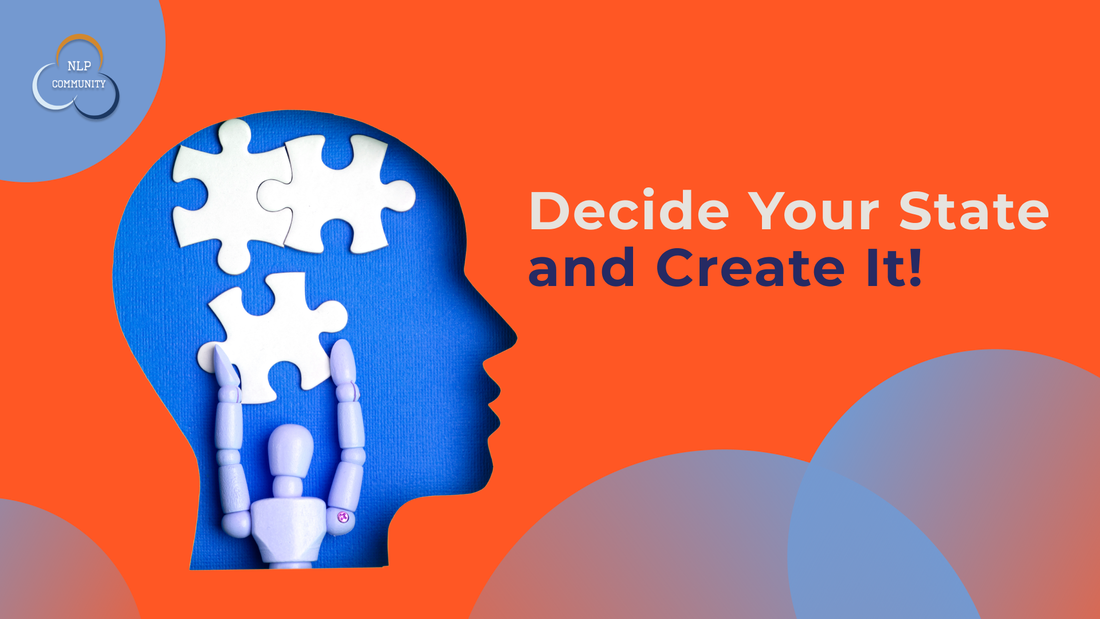


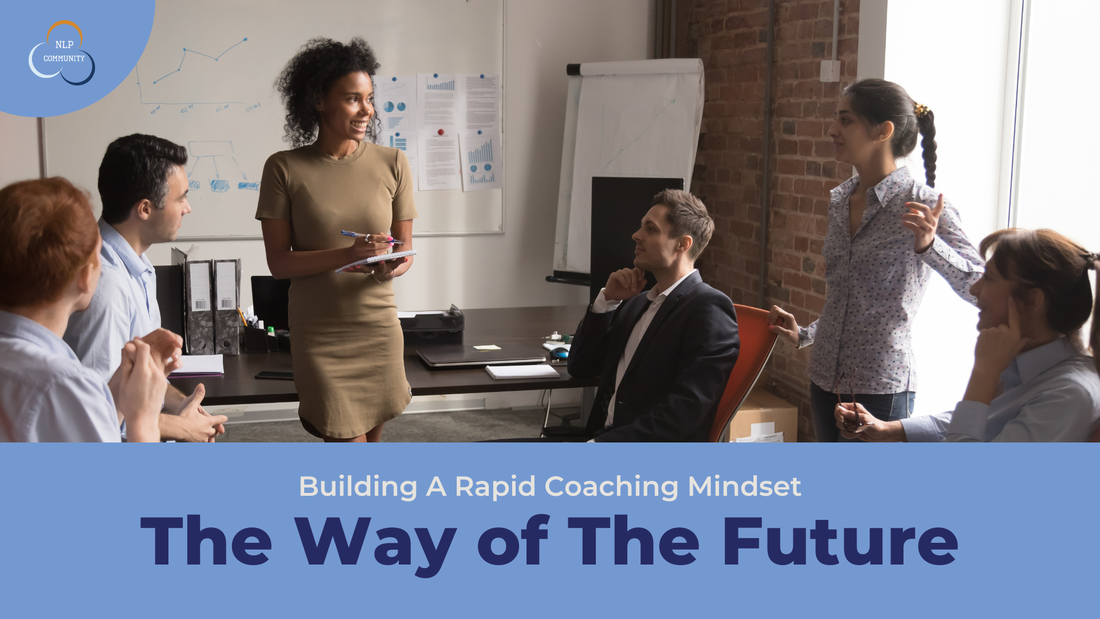

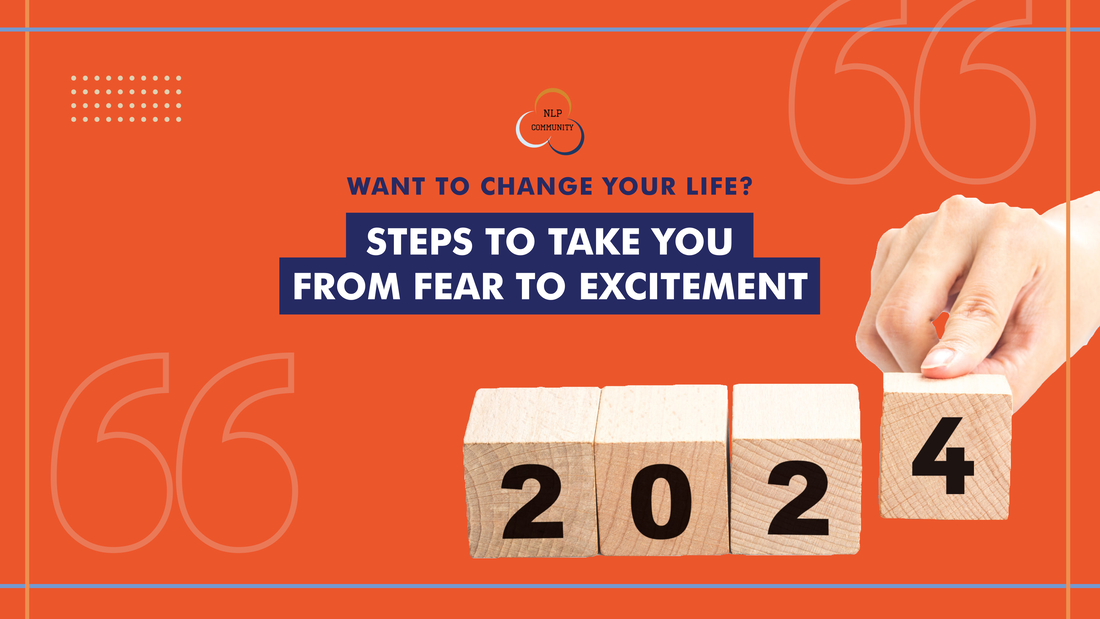
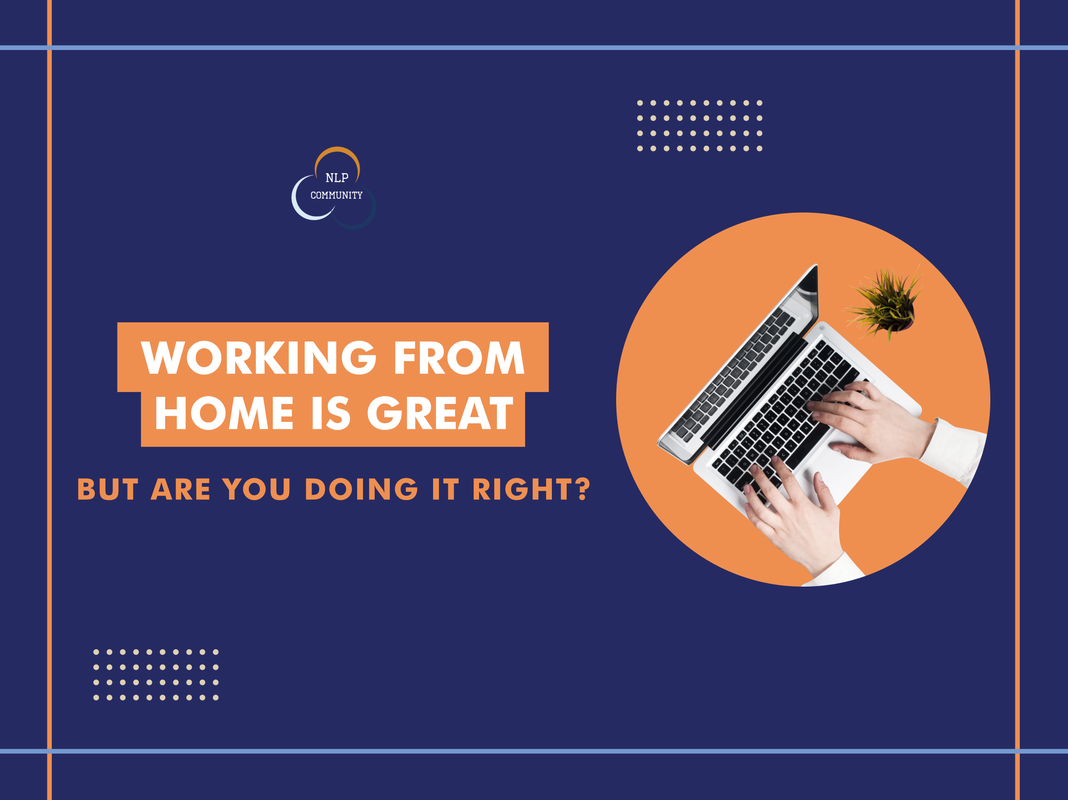

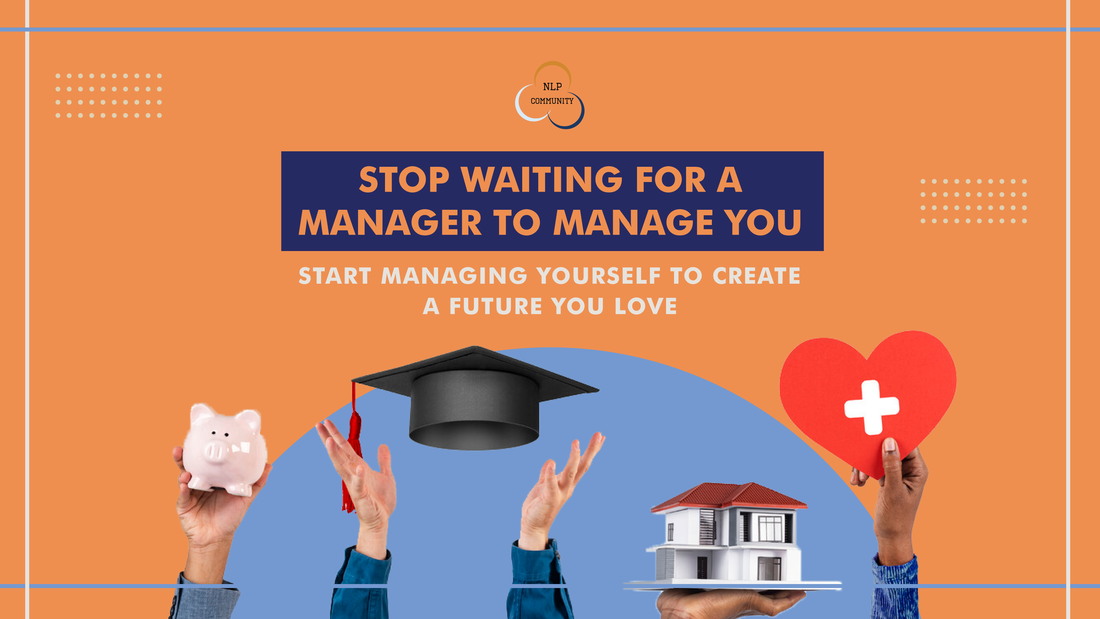
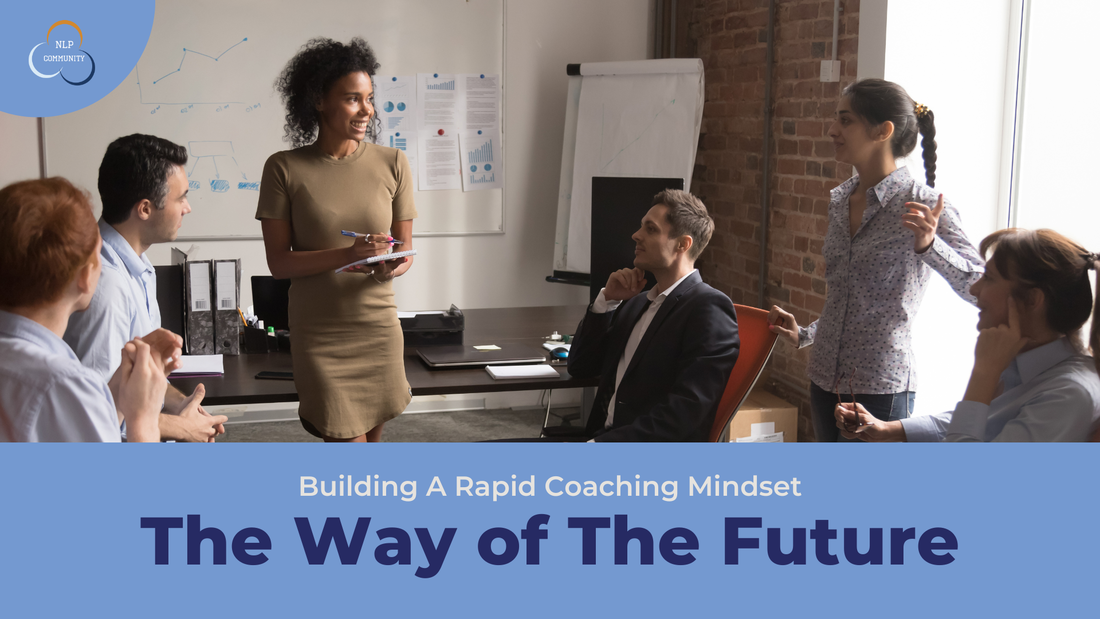
 RSS Feed
RSS Feed





